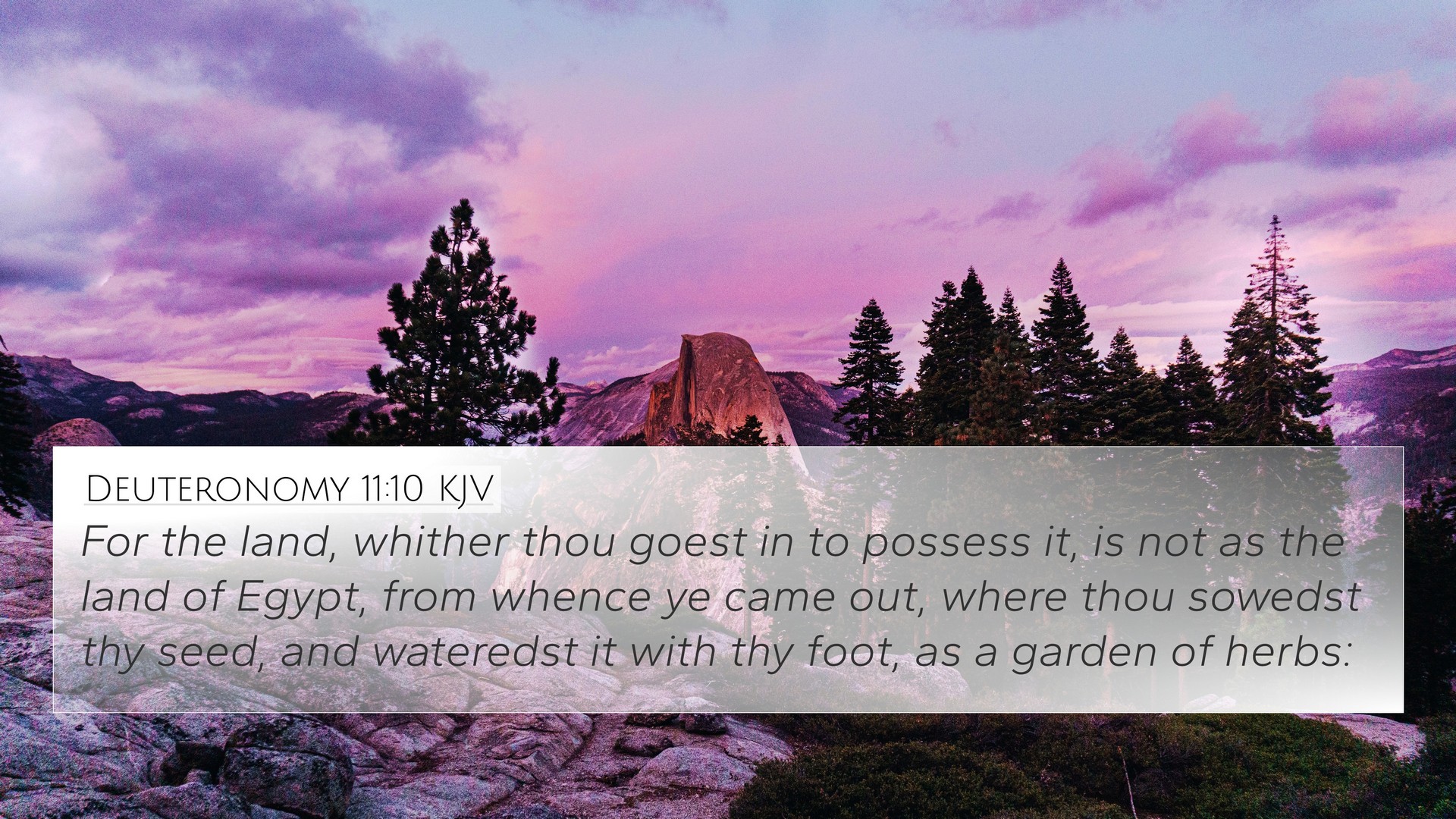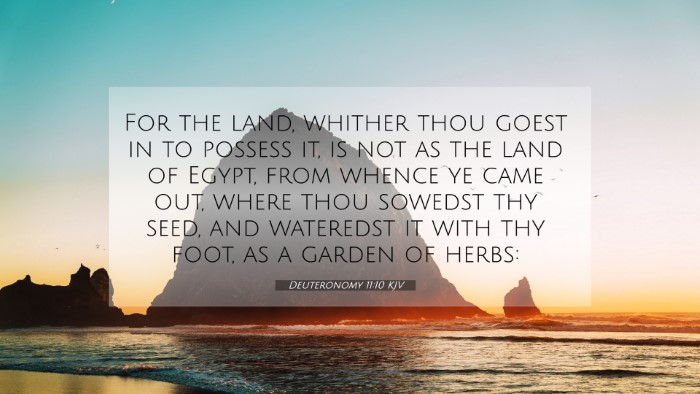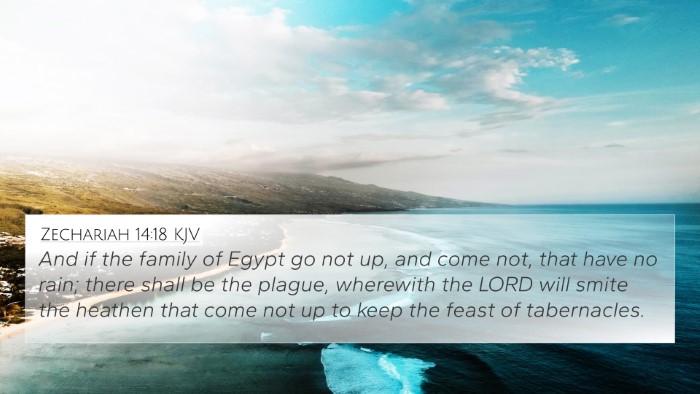Understanding Deuteronomy 11:10
Deuteronomy 11:10: "For the land, whither thou goest in to possess it, is not as the land of Egypt, from whence ye came out, where thou sowedst thy seed, and wateredst it with thy foot, as a garden of herbs."
This verse serves as a reminder of the differences between Egypt and the Promised Land that the Israelites were about to enter. It emphasizes the distinctiveness of God's provision in the land He is giving them, contrasting it with their previous experiences in Egypt.
Commentary Insights
-
Matthew Henry:
Henry points out that the land of Egypt, which required much toil and labor, is contrasted with the land of Canaan that flows with milk and honey. The Israelites must understand that the cultivation and sustenance in the Promised Land would be under God's care, and that they will not need to rely solely on their efforts.
-
Albert Barnes:
Barnes elaborates on the agricultural practices in Egypt, which required manual efforts for irrigation, contrasting this with the natural fertility of Canaan. He underscores that the Israelites will experience God's blessings in abundance, allowing their faith to grow as they depend on Him for sustenance.
-
Adam Clarke:
Clarke highlights the spiritual application of this transition from Egypt to Canaan. He interprets the physical journey as a metaphor for spiritual growth and reliance on God’s grace. Just as the Israelites learned to trust God for their needs, Christians are called to trust in God’s provision.
Thematic Connections
The verse draws important connections across the Biblical narrative. Here are some significant Bible verse cross-references related to Deuteronomy 11:10:
- Exodus 3:8: God's promise of a land flowing with milk and honey, emphasizing His provision.
- Numbers 13:27: The report of the spies confirms the goodness of the land, noting its fertility compared to Egypt.
- Jeremiah 2:7: This verse speaks to God’s expectations of His people and contrasts their past in Egypt with the blessings of the Promised Land.
- Matthew 6:33: Jesus teaches about seeking God and His righteousness, drawing a parallel to reliance on God for provision in the Kingdom.
- 1 Corinthians 10:1-4: Paul reflects on the experiences of Israel in the wilderness and their spiritual significance for Christians.
- Hebrews 11:9-10: This passage highlights the faith of Abraham, living in the Promised Land as a foreigner, looking forward to a city built by God.
- John 4:14: Jesus' promise of living water can be seen as a thematic connection to the life-giving power of the land in Canaan versus Egypt.
Cross-Referencing Biblical Texts
In the study of Bible verse connections, it’s essential to observe how this passage reflects broader theological concepts:
- Identifying the shift from dependency on human effort in Egypt to divine provision in Canaan.
- The spiritual journey from bondage to liberation parallels the physical journey from Egypt to Canaan.
- Understanding the implications of entering the Promised Land parallels the Christian experience of entering into God’s rest.
Tools for Bible Cross-Referencing
Engaging in a cross-reference Bible study allows for a deeper understanding of themes and connections between verses. Here are some recommended tools and methods:
- Bible Concordance: A structured way to find verses based on keywords or topics.
- Bible Cross-Reference Guide: Guides that show how verses relate to each other.
- Comprehensive Bible Cross-Reference Materials: Utilizing tools that provide extensive links between verses.
- Bible Reference Resources: Websites and books dedicated to cross-referencing Biblical texts.
Conclusion
Deuteronomy 11:10 highlights the transition from Egypt to Canaan as more than a geographical move; it signifies a deeper spiritual journey marked by reliance on God. Each cross-reference underscores the themes of dependence, faith, and divine provision. Through this lens, believers can enhance their understanding of Scripture and find encouragement in the continual provision of God in their own lives.



